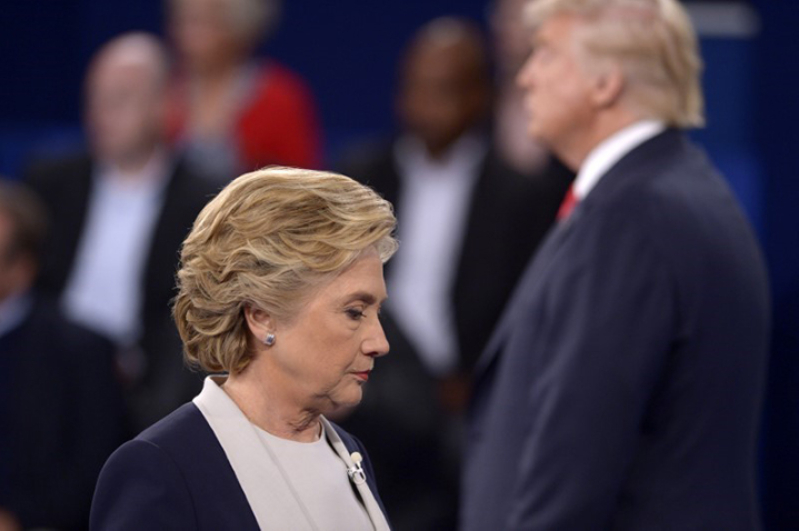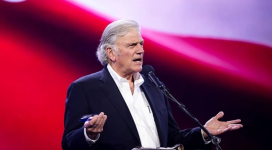
Pastor Robert Jeffress has explained why he continues to support Donald Trump in light of the growing number of allegations that the GOP candidate has sexually assaulted several women and suggested that Hillary Clinton "supports the greatest assault on women of all" - abortion.
Jeffress, who leads First Baptist Church in Dallas, Texas, said in an interview with NPR that like himself, many evangelicals are not endorsing a particular lifestyle in supporting Trump - they're simply voting on the issues.
"But what I would say is this. You know, in 1980, evangelicals overwhelmingly elected a candidate who was a known womanizer when he was in Hollywood. He would be the first divorced president in US history. His name was Ronald Reagan," Jeffress told host Michael Martin. "And when evangelicals voted for Reagan, they weren't endorsing womanizing. They weren't endorsing divorce. They were endorsing Reagan's policies.
"And I think that's why Donald Trump continues to enjoy evangelical support," the pastor continued. "They're not endorsing necessarily his lifestyle. What they're saying is this is a binary choice between one candidate, Donald Trump, - who is pro-life, pro-religious liberty, pro-conservative justices of the Supreme Court - and another candidate, Hillary Clinton, who has an opposite view on all of those issues."
Jeffress said that he understands why some women are refusing to support Trump in light of the sexual-misconduct allegations brought against the GOP nominee. However, he pointed out that Clinton has done far worse to women and actively supports Planned Parenthood, which has aborted an estimated 6,803,782 unborn babies in its 100-year history.
"I think everybody has to come to their conclusion," he said. "If you decide that what he said is true and that he's actually done those things, then you have to make a choice. If the answer is not Donald Trump because he has verbally or otherwise assaulted women, do you really want to put a woman into the White House who supports the greatest assault on women of all? And that is murdering them in the womb before they have a chance to be born."
Jeffress also explained that he prefers someone who will protect the United States and fight ISIS over "some meek and mild leader or somebody who's going to turn the other cheek and added that Trump had "redeemed himself" during the second presidential debate last weekend.
"I think he was very strong in that debate. And I think he showed a real quality that every leader needs, and that's resiliency. I mean, let's face it, he's up against the ropes right now. But he hasn't thrown a pity party for himself. And I think if he should become commander in chief, we all want that in a leader, somebody who is able to fight back."
Despite the release of a 2005 recording of Trump bragging about forcibly kissing and grabbing women and attempting sex with a married woman, a number of evangelical leaders continue to support Trump - including Family Research Council's Tony Perkins, Faith and Freedom Coalition's Ralph Reed, James Dobson of Focus of the Family, Liberty University President Jerry Falwell Jr, and CBN's Pat Robertson - arguing that if Clinton from wins the presidency, she will inevitably reshape the Supreme Court and implement liberal policies regarding abortion.
In contrast, a group evangelical women, including Beth Moore, Jen Hatmaker, Christine Caine, Trillia Newbell and Kay Warren; musicians Nichole Nordeman and Sara Groves; and Moody Radio host Julie Roys have criticized Christian leaders who dismiss talk of sexual abuse and the objectification women and signed an open letter condemning Trump's remarks.
A number of male Christian leaders have also refused to support the billionaire businessmen, including John Piper, James MacDonald, Max Lucado, and Wayne Grudem, who recanted earlier statements of support for the candidate.







